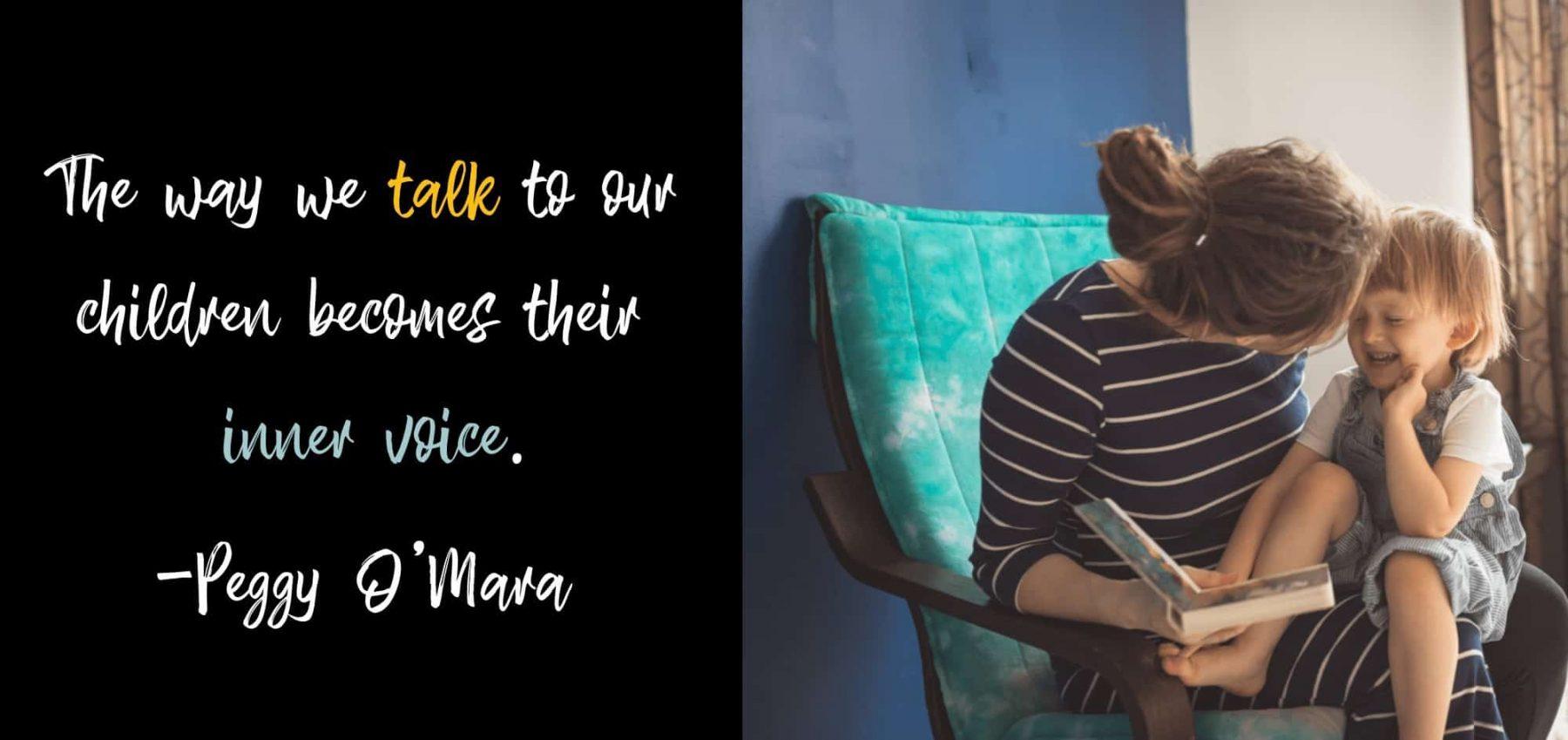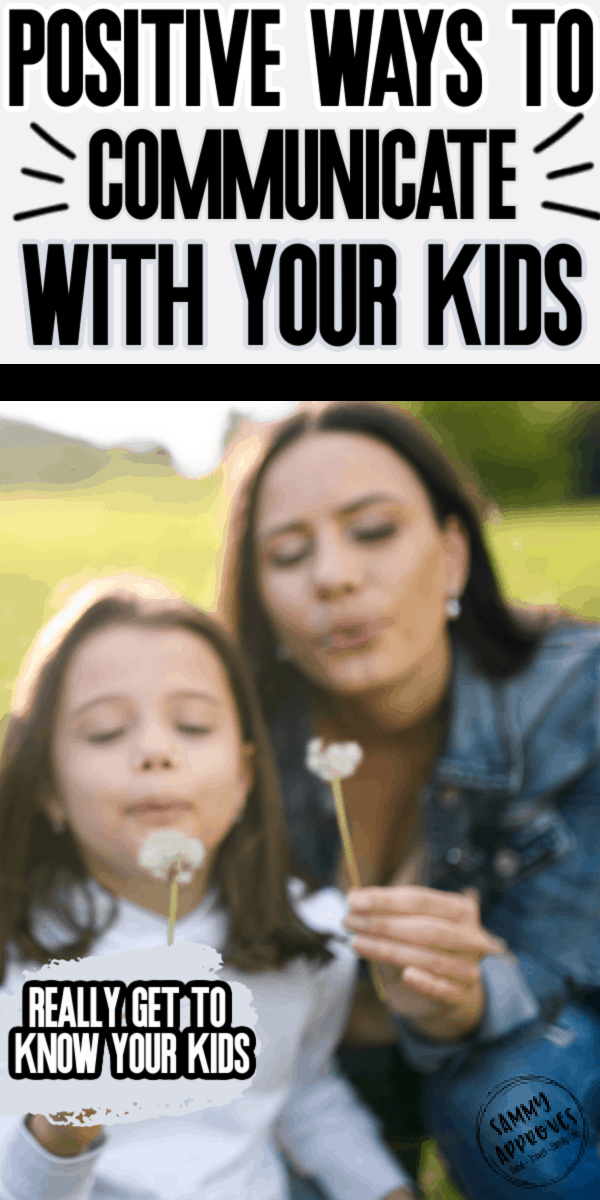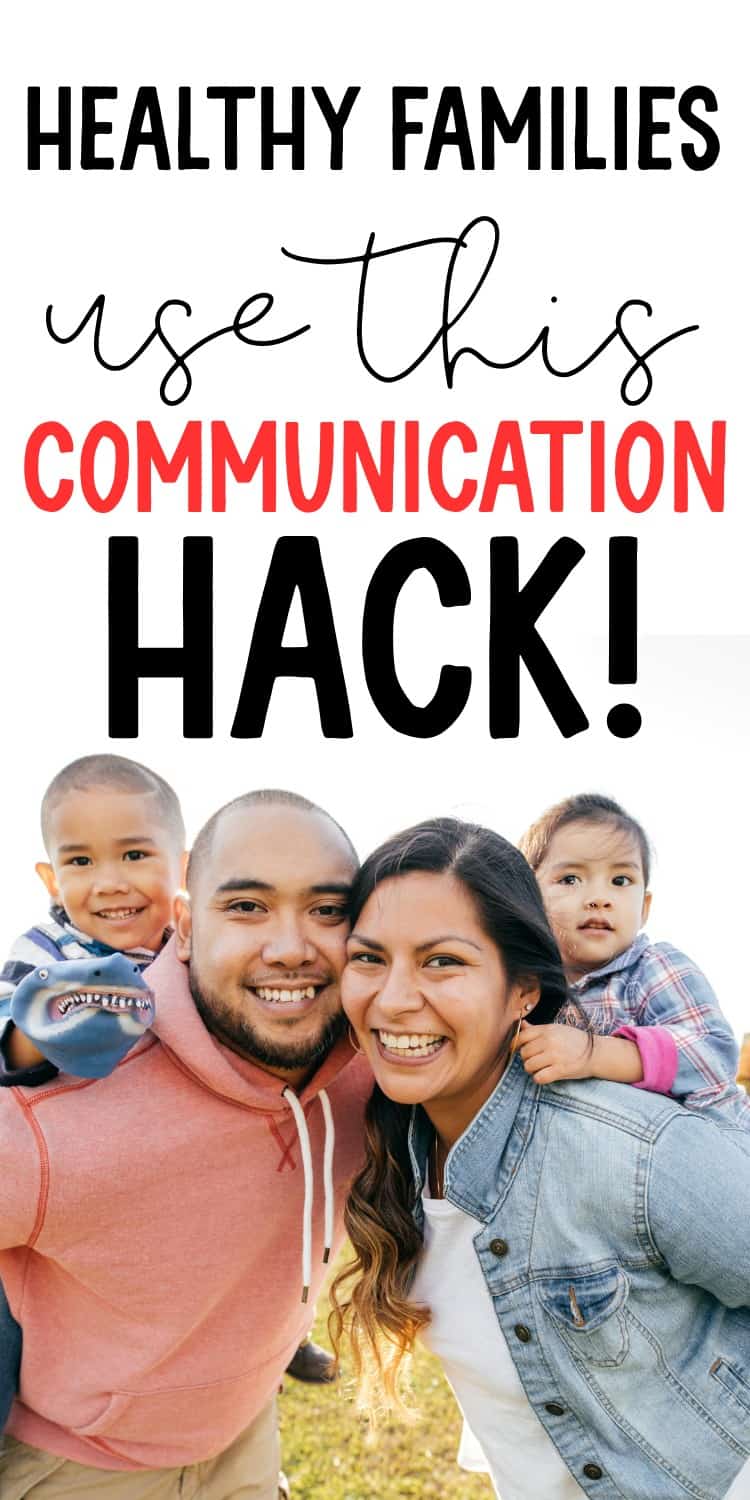Family communication is probably one of the easiest areas to improve the family bond you have with your children.
Checking in with your kids, building that foundation where they feel safe to come to you with problems is so important.
Parents need to remember..
- Kids, no matter how small are human beings
- Kids have feelings they need to express daily
- As a parent you are the first person to teach your children about healthy communication and how to express their feelings. The parent-child relationship you build early on is important.
Communication is something that can easily fall by the wayside when you are busy with school, work, and the business of life in general.
I’ve been there with my own family… just trying to make it through the day step by step, going through the motions. Anxiety and depression can only make this worse as we are really just trying to get through the day.
It becomes easy to forget to check in with our kids and spouse about how the day went, taking time to sit down as a family for dinner or unplugged time. In these moments we lose out on important communication that our kids need to feel that close bond with their parents.

What is effective family communication at home?
Families with effective communication will regularly communicate with each other. They will actively listen and respond.
I stumbled upon this UNICEF project on childhood communication which highlights the importance of effective communication in families. They stress the importance of communication from birth to the teen years. At each age your child benefit in different ways from communication in the home.
- Babies, toddlers, and preschoolers are learning to develop their language skills. These early skills are so important.
- Elementary age kids will be watching their parents and learning through communication how to develop friendships and relationships. They will also learn and become comfortable with sharing their emotions and feelings with you. The CDC suggests that building strong communication with your children early on will help you more easily talk with them about drugs and alcohol during their teen years.
- Tween and teen years are especially important for communication as your child enters puberty and may start to experience peer pressure.
Family Communication Problems

Before you begin to improve the communication in your home take a quick moment to assess areas for improvement. Do you notice any family communication problems?
The way we talk to our children becomes their inner voice.
Peggy O’Mara
Ask yourself these 5 questions to start:
- How many conversations per day do I have with my kids?
- Are we making time to be unplugged from electronics?
- Am I actively listening and responding to my kids?
- Have we created opportunities for our kids to talk with us one on one?
- How many times per week do we sit down as a family to talk?
If you’re a busy parent I’m sure at least one of these questions will hit an area where you can improve communication as a family.
How can I improve communication at home with my kids?

Even if your communication is good there is always room for improvement.
I like to take a step back and check my family communication every so often… because I get busy and our communication can suffer for it easily if I’m not re-focusing on it.
Here are some things you can do to improve communication in your home:
- Schedule Family Meetings – Make sure you schedule in time to talk as a family with an agenda and everything. So, you know you aren’t missing out on communication with each family member at least on a weekly or monthly basis.
- Unplug – Make rules about screen time. This doesn’t have to be strict. Just plan to have some time during each day where everyone is unplugged and open to connect. Breakfast or dinner are good times for this!
- Plan dates with your kids – Spending one on one time with each child is so important. Your kids need to know how important they are to you and that you’re interested in their lives. Take them out to ice cream or on a walk. Here are some conversation starters to get started.
- Start Traditions – Commit to some new family traditions or family activities you can bond over. Communication is sparked when we share common interests.
- Stay Positive – When your kids are misbehaving turn it into an opportunity to communicate. Use positive parenting strategies to connect with your child. These are important moments to communicate with your child and come to a deeper understanding.
- Take Interest– Get interested and invested in the things your kids love. Their hobbies, favorite foods, TV shows, color. Get to know your kids and be their biggest fan. Your kids want to share what they love with you and, like I said, shared interests will open doors to communication with your child.
- Discuss Hard Things– As your kids grow older and experience hardships don’t avoid them. Communicate hard things with them in an age appropriate way. Help them learn that it’s okay to talk about hard things and their feelings. Validate their feelings and let them know they’re heard. If your family or child is really struggling you may need to seek the help of a family therapist to help you communicate.
- Participate – Take an active role participating in your kids daily life. Volunteer at their school, attend field trips, concerts, parent conferences. Explore ways you can be more involved. (This doesn’t work for every family, but we started homeschooling and it did wonders for our family relationship!)
The more involved you are in your child’s day to day life the better your communication becomes! - Re-Check Your Communication– Take time to ask yourself monthly if your family communication is where you want it to be. Find those areas for improvement. Schedule it in your planner or calendar if you need to. It’s okay and normal to get busy and communication to fall by the wayside. But, you need to make sure you recheck communication and find areas to improve.

Taking the time out to improve communication at home will help you grow as a family. Your family will become healthier, stronger, and more bonded with more open communications. More importantly your kids will grow up with a healthy example of communicating.
Having an outlet of communication from a young age will no doubt have them growing up with a strong foundation that will help them as adults.
How are you building stronger communication at home? I’d love to hear your ideas in the comments below!





Leave a Reply